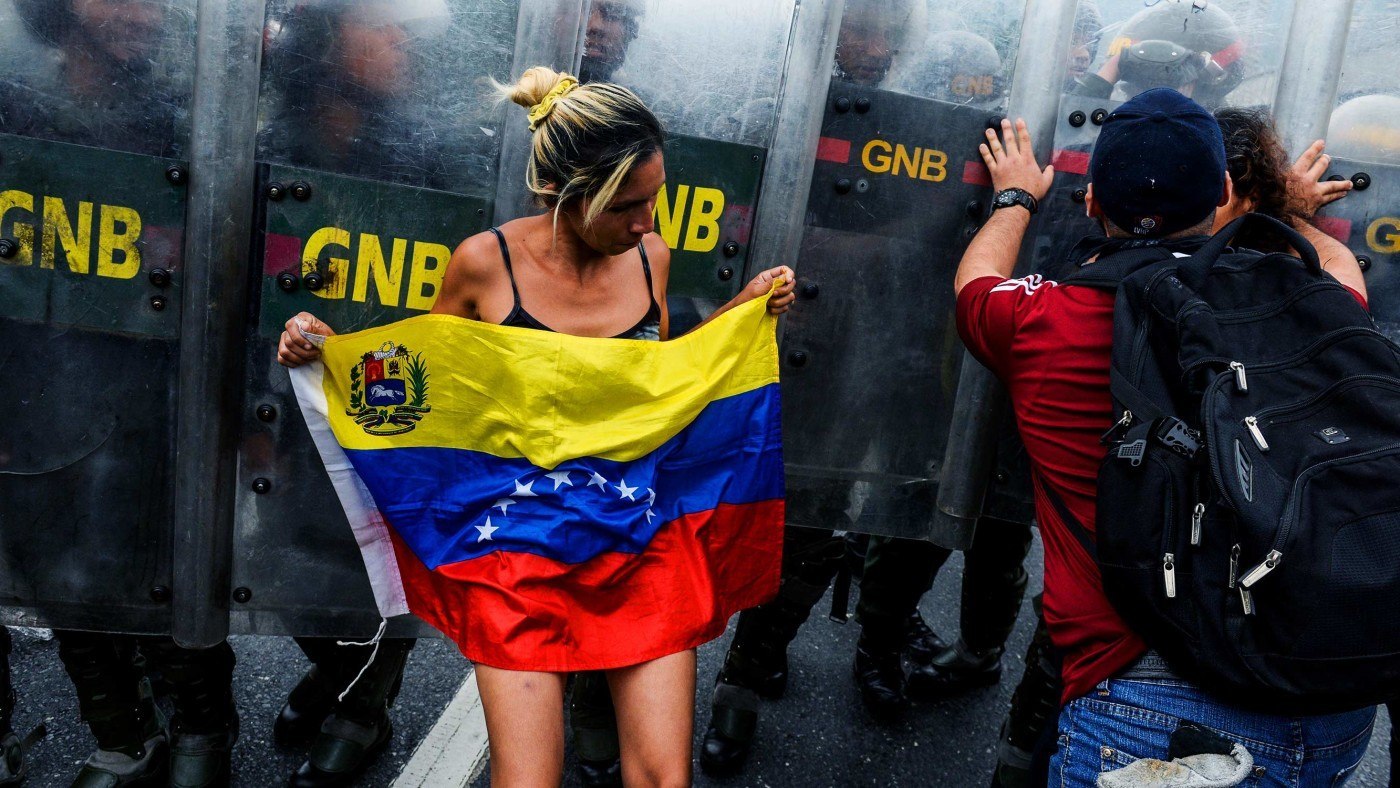Shortages have become so common in Venezuela they scarcely make the international news anymore. But over the last few years, the list of things Venezuelans lack has been growing steadily longer.
Reports of endless queues for basic goods like bread and toilet paper gave way to more alarming concerns about un-staffed hospitals running out of cancer drugs and paracetamol. Then the losses became more abstract: Venezuela’s electricity crisis was so bad the country could no longer afford to stay in its own time zone, and it later became too broke to pay to print the banknotes it so desperately needed as inflation sky-rocketed towards 500 percent.
On Friday, President Nicolás Maduro claimed three more casualties from long-suffering Venezuelan citizens: property rights, freedom, and democracy.
The terms of the 60-day state of emergency called by the president are chilling. Abandoning any semblance of respect for private property, the decree gives the government the right to take control of businesses if it decides they are not doing enough to provide basic goods. Companies with foreign links are also at risk of having their finances frozen. Maduro has already threatened to seize factories which have closed due to an inability to buy foreign supplies supplies, saying “Anyone who wants to halt [production] to sabotage the country should get out, and those who do must be handcuffed”.
Constitutional safeguards clearly mean nothing to the president; he has sent the army into the streets. Ostensibly the military’s role is to distribute food, but Maduro also instructed armed forces to assist the police in maintaining civil order as riots break out across the country. Venezuelans who try to protest against their increasingly authoritarian government are now being met with tear gas and violence.
The timing of the state of emergency decree is no coincidence. Earlier this month, opposition politicians submitted a petition signed by 1.85 million people, demanding a referendum to recall Maduro before the end of his presidential term. But on Monday, Vice President Aristobulo Isturiz declared: “Maduro won’t be ousted by a referendum because there will be no referendum”, claiming the referendum could not go ahead for technical reasons.
On Wednesday, anti-government demonstrators will march across the nation in protest, but Maduro has made it clear how their valid concerns about his undemocratic regime will be met.
Maduro has never had much respect for democracy. He also declared a state of emergency last September, which conveniently enabled him to station troops in regions with strong opposition support in the run-up to December’s parliamentary elections. Despite this intimidation tactic, opposition parties won an overwhelming two-thirds majority in parliament – enough to pass a constitutional amendment on Maduro’s presidency. But pro-government Supreme Court justices suspended three deputies on dubious grounds, robbing the opposition of its super-majority and cementing Maduro’s grip on presidential power.
Nicolás Maduro’s regime has stripped Venezuela of all hope of economic prosperity. Under his leadership and that of socialist icon Hugo Chávez before him, private enterprises, including the country’s highly successful oil industry, have been forcibly shackled by the state, giving rise to crisis after crisis. The government enforces unworkable currency exchange rates, imposes debilitating import tariffs, sets delusional price controls, and nationalises profitable companies. In the chaos that follows, the answer has always been the same: more state control, more freedom wrested from individuals by corrupt officials, more debt and more rhetoric against the rest of the world.
To justify this extreme power-grab, Maduro once again blamed foreign forces for horror he himself inflicted. He claimed this state of emergency was to “denounce, neutralise and overcome the external and foreign aggressions against our country” and has ordered military exercises to prepare for a US invasion he promises is imminent.
Of course, Maduro does not need the US to destroy Venezuela – he has managed that entirely on his own. The greatest threat to the South American nation is the president himself. His socialist ideology had already deprived his citizens of wealth and prosperity; now his fanaticism has robbed them of freedom and democracy as well.


